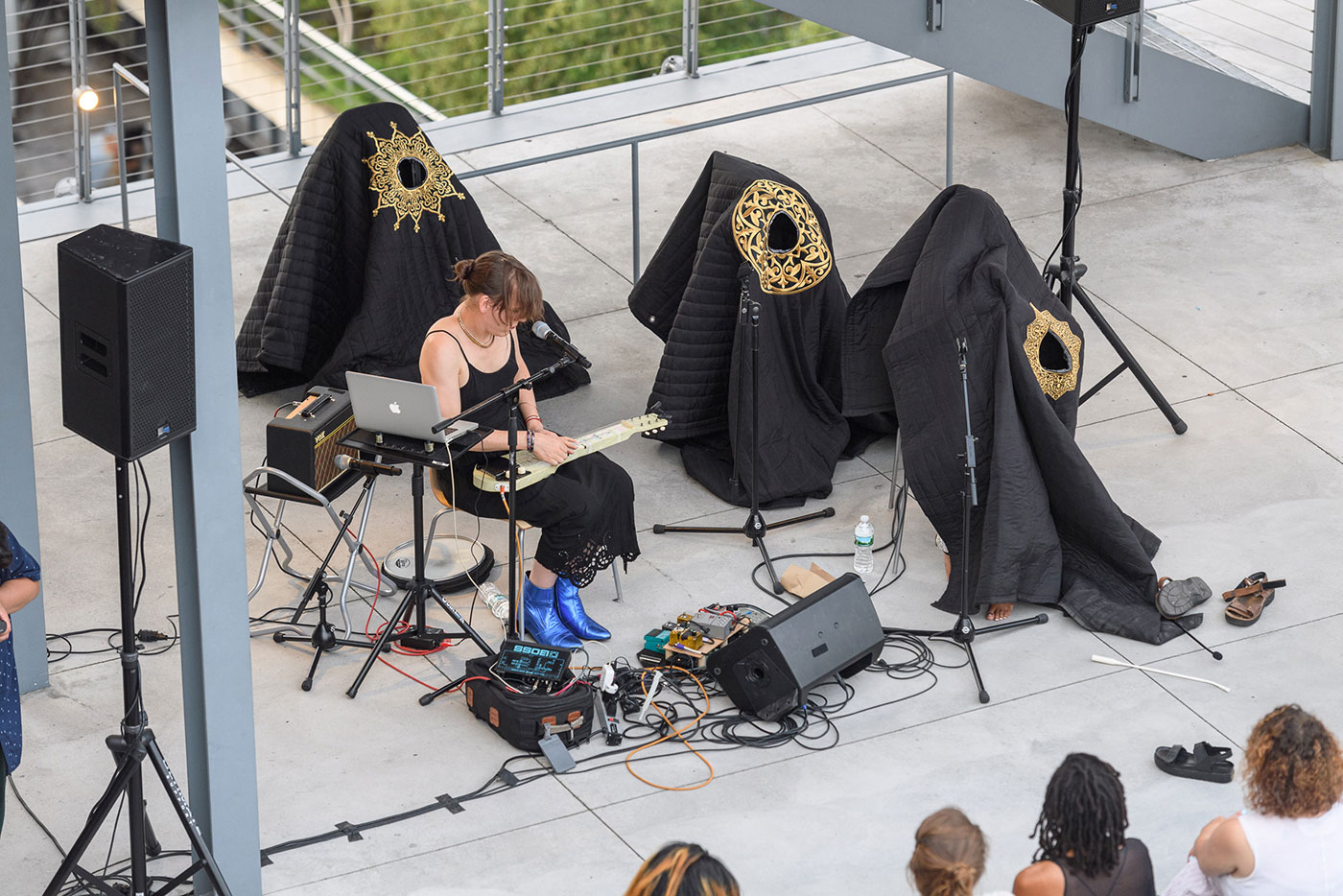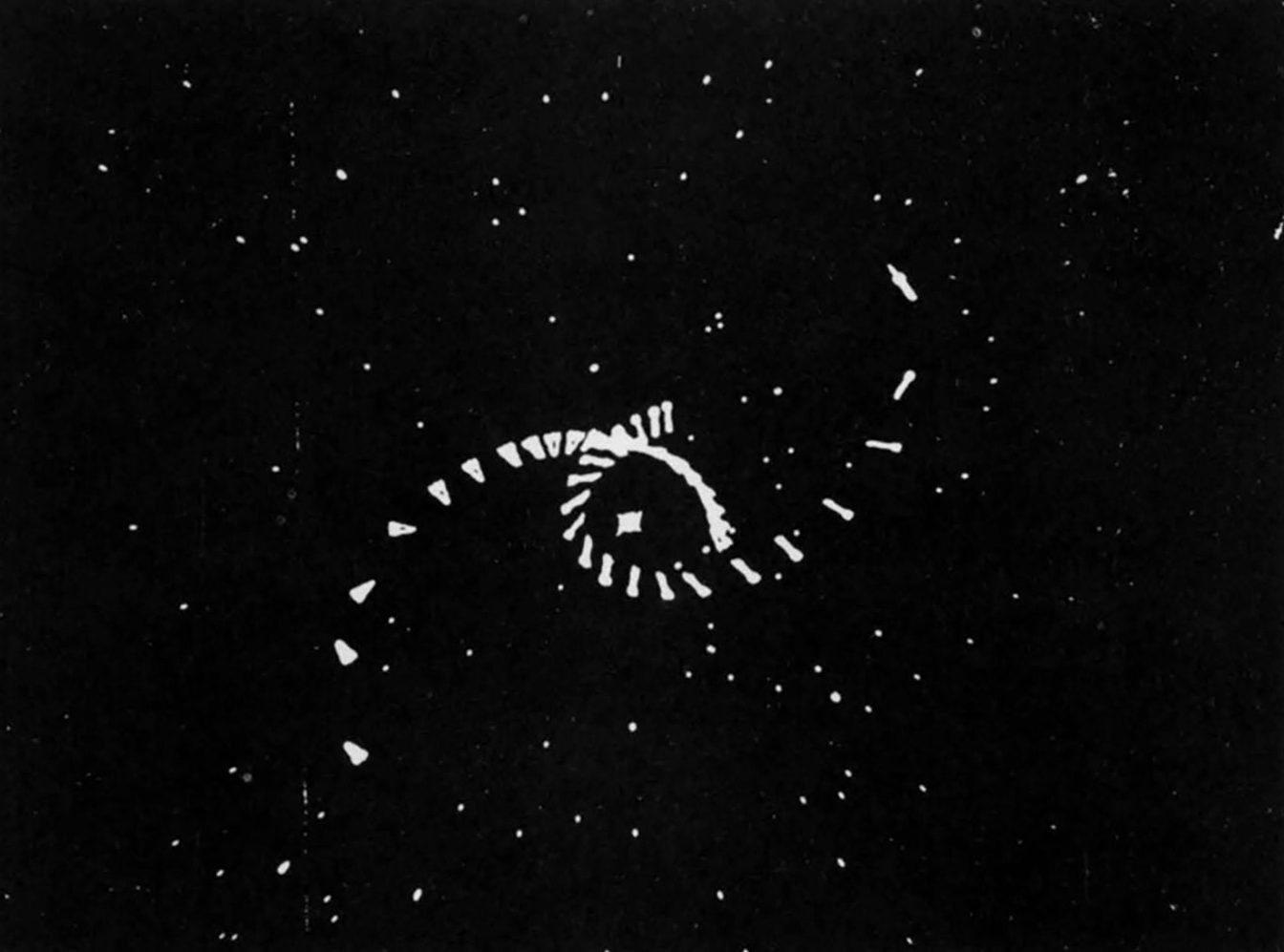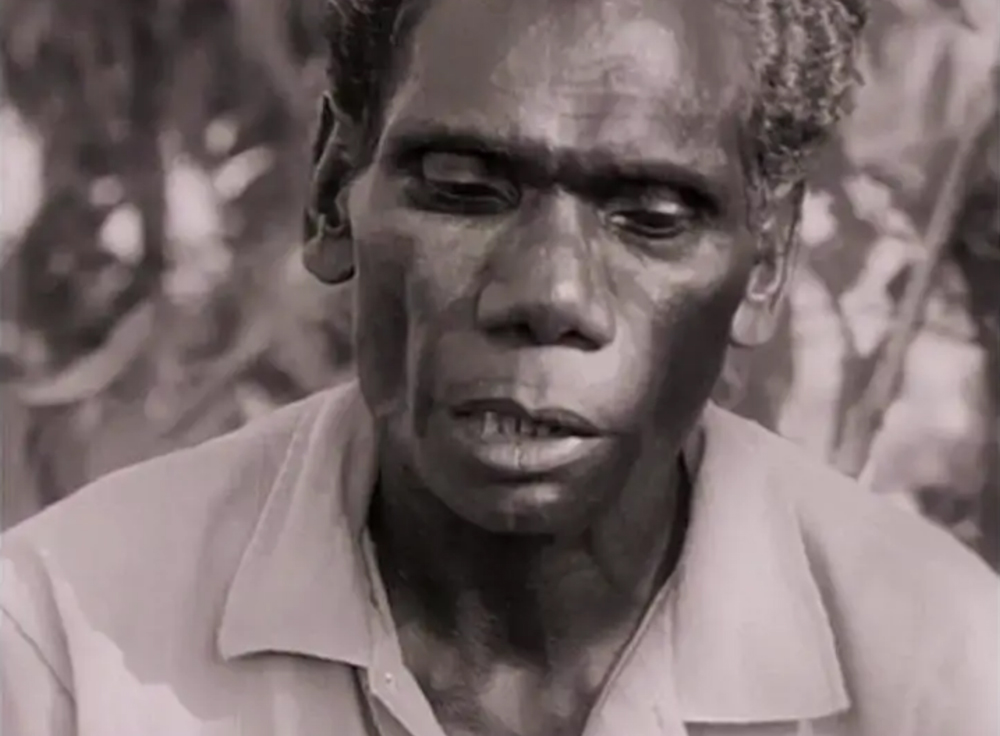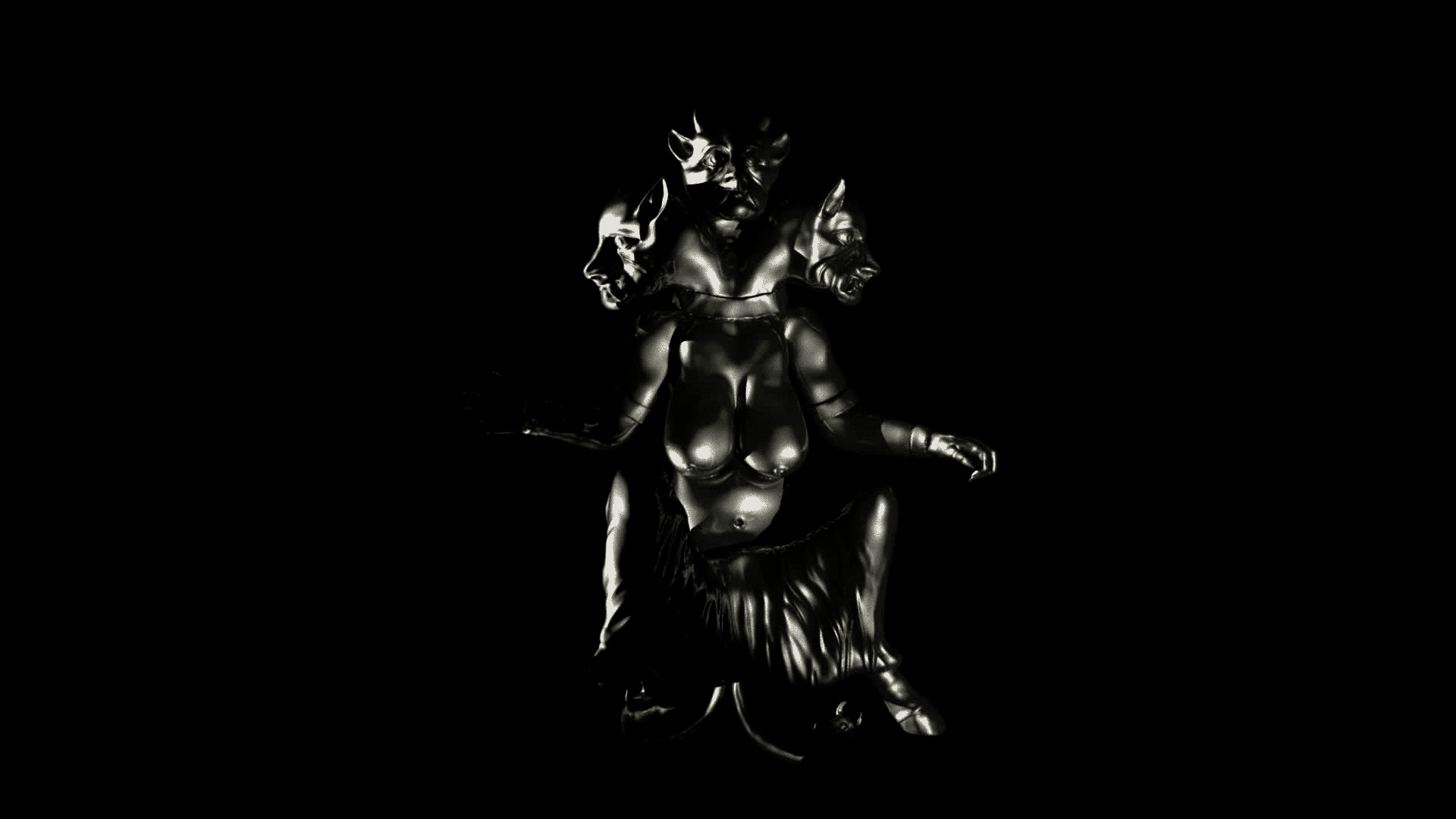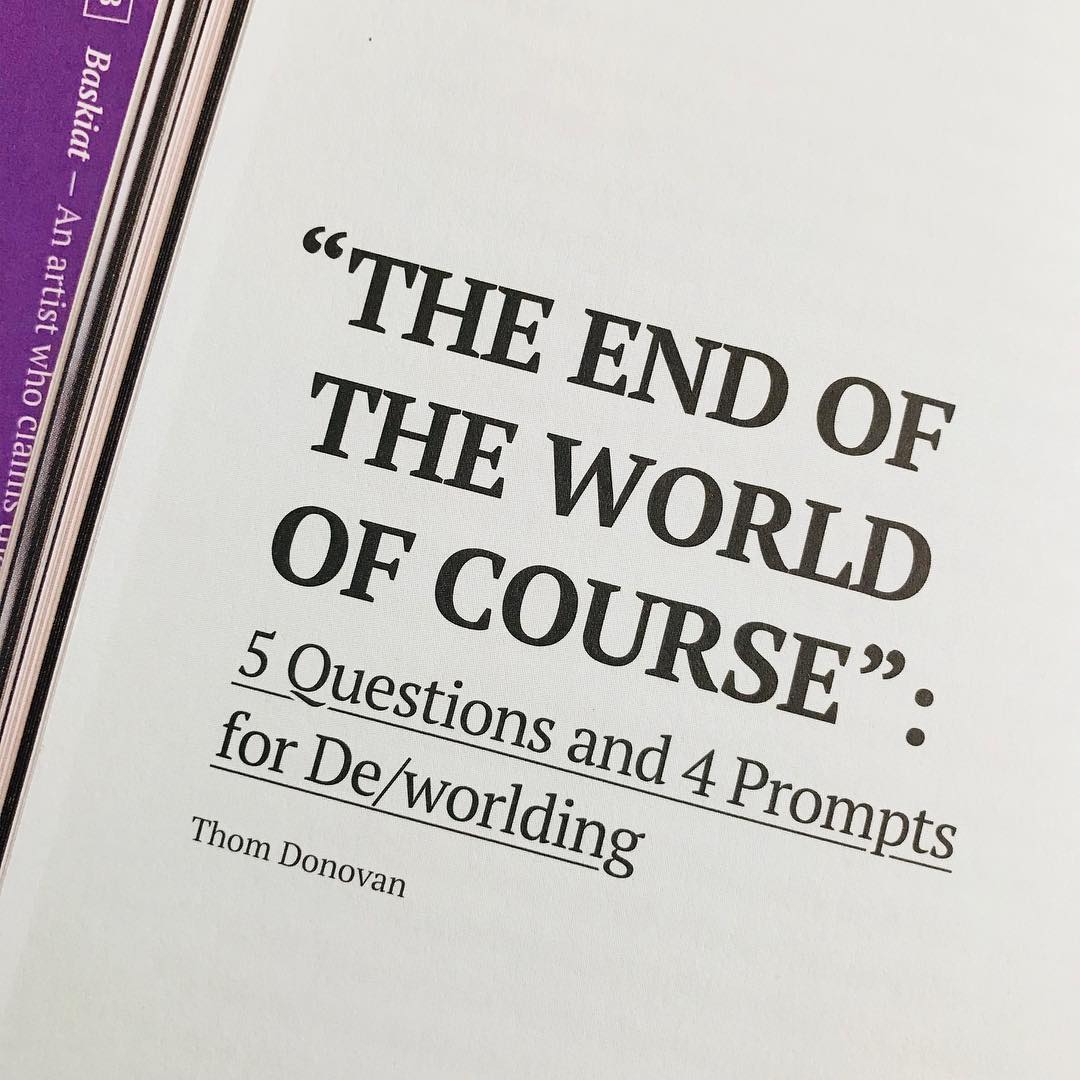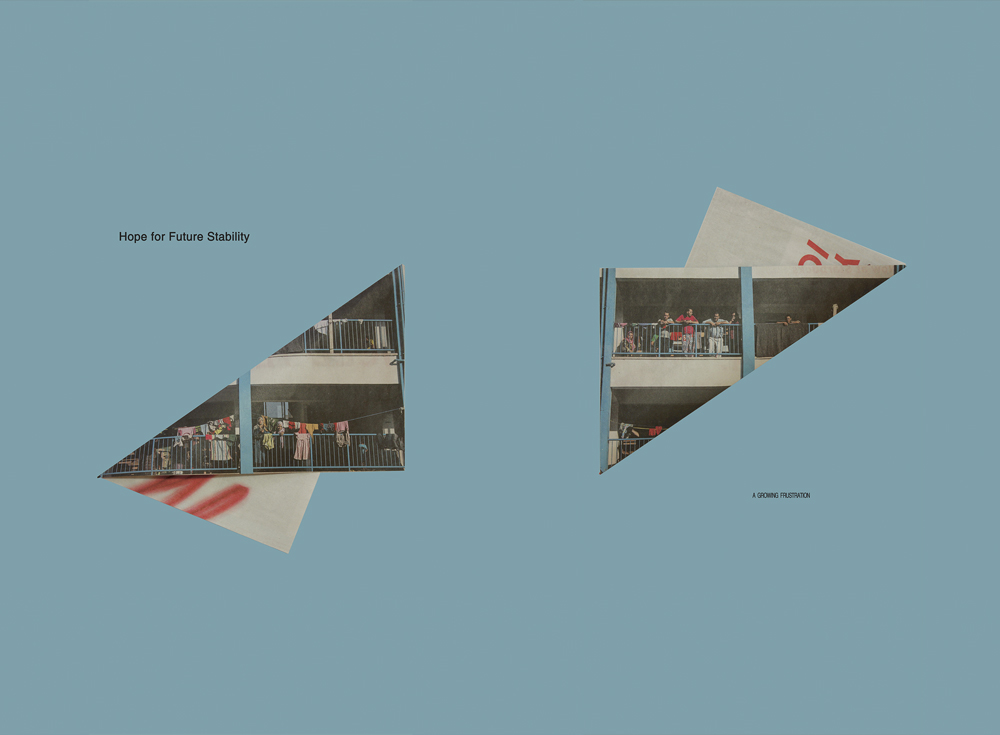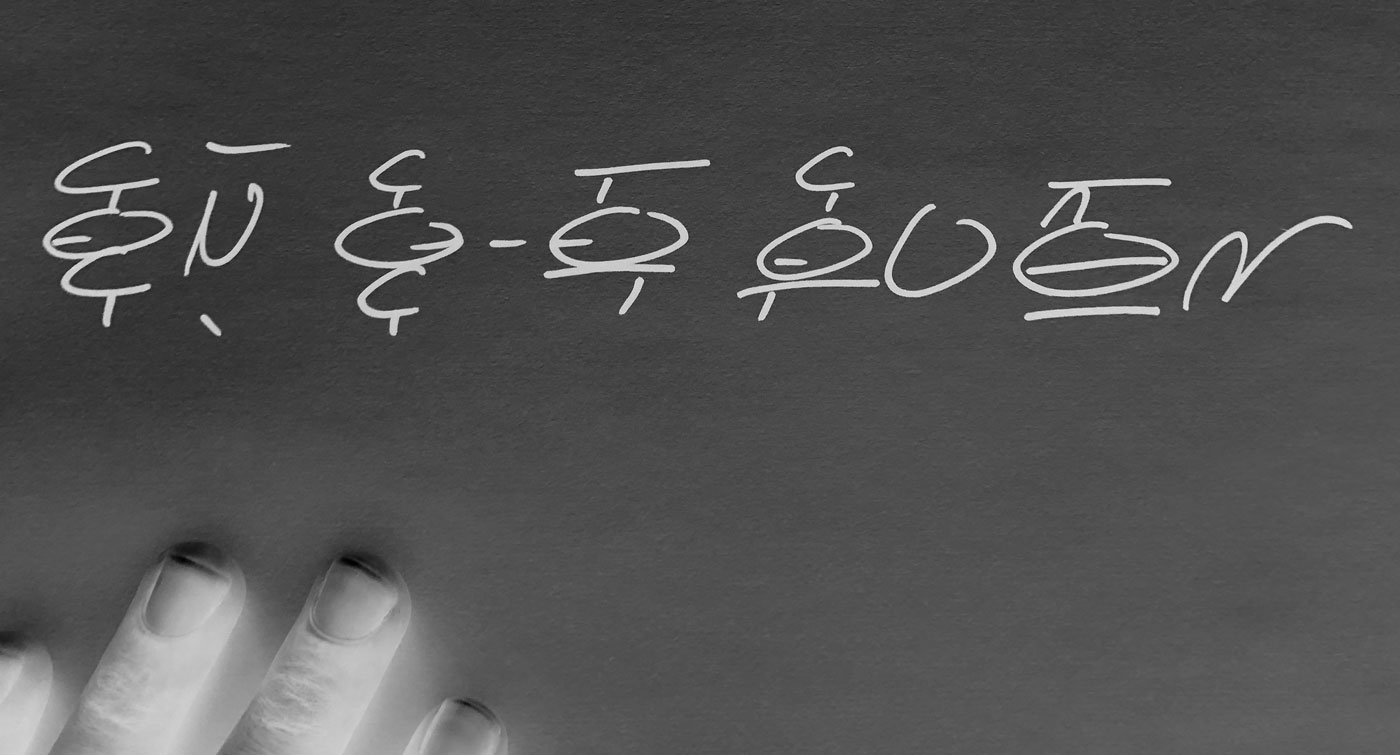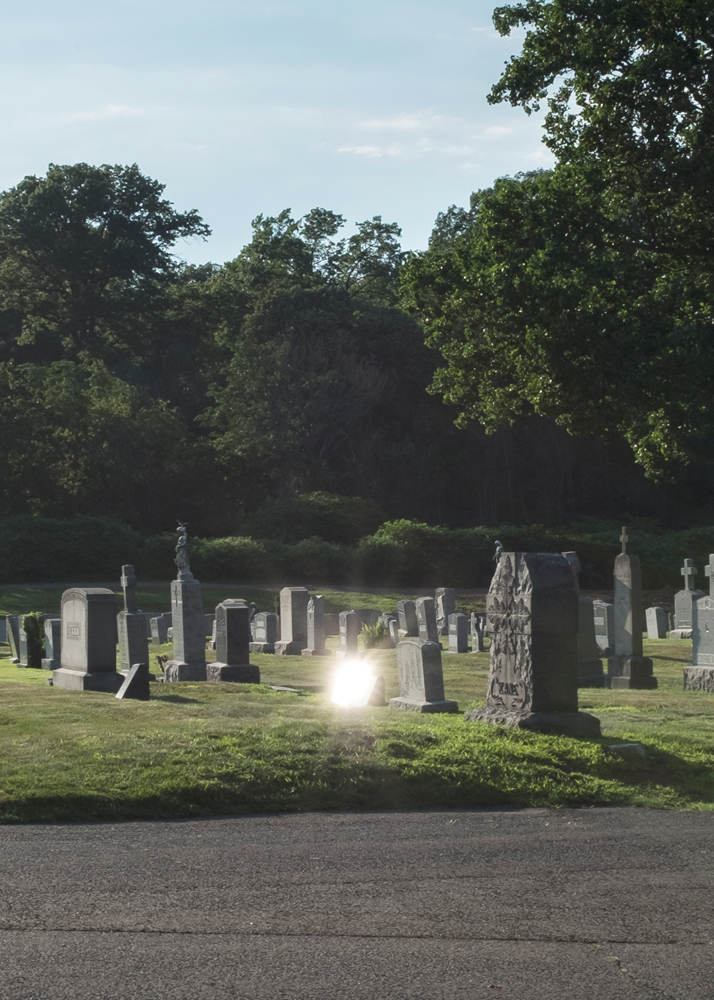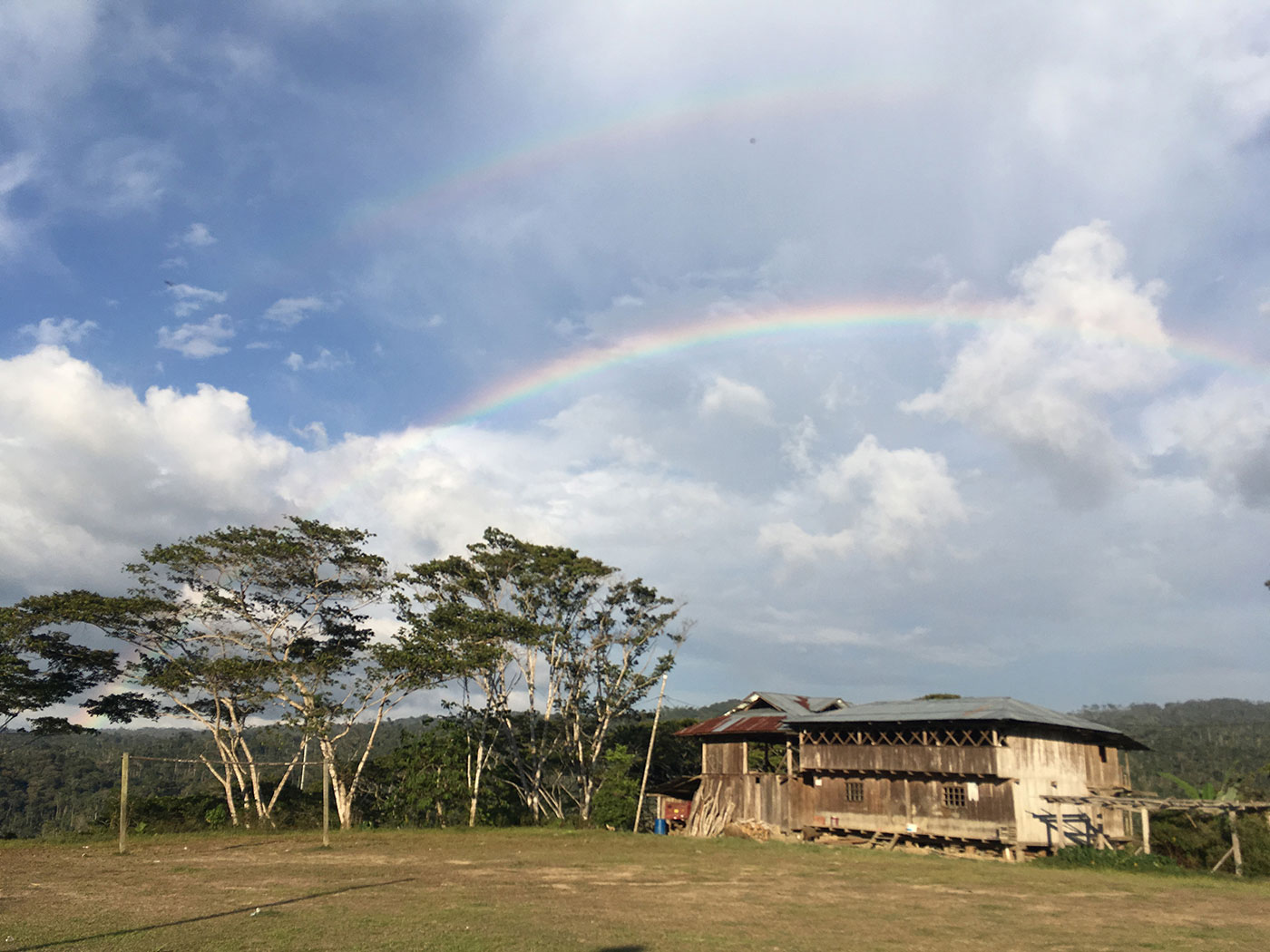Black Mysticism
Calvin Warren
Afro-Pessimists Frank Wilderson and Jared Sexton argue that the transatlantic slave trade created blackness as non-being, or non-ontology. This “social death”1 is defined by “gratuitous violence,”2 general dishonor, and isolation from all kinship and community relations other than that of the master/slave. For Fred Moten, blackness is shaped by and inseparable from anti-blackness, but is always already more than it. Instead of the non-ontological status conferred by social death, Moten points to a blackness without ontology that Calvin L. Warren calls “Black Mysticism.”
In the following excerpt, Warren looks at the relationship between Moten’s “Black Mysticism” and black people. The full version of his essay is titled “Black Mysticism: Fred Moten’s Phenomenology of (Black) Spirit.”
Fred Moten’s etiology of Blackness begins elsewhere—something we might call the paraontological:
What emerges in the desire that constitutes a certain proximity to that thought is not (just) that blackness is ontologically prior to the logistics and regulative power that is supposed to have brought it into existence but that blackness is prior to ontology; or in a slight variation of what Nahum Chandler would say, blackness is the an-original displacement of ontology, that it is ontology’s anti- and ante foundation, ontology’s underground, the irreparable disturbance of ontology’s time and space.
The etiology (origin) and nature of blackness are woven together tightly in his theory of Blackness. Unlike Afro-pessimists, Moten believes that “blackness is ontologically prior to the logistics and regulatory power” of anti-blackness. Blackness is not an adjunct to racial slavery, but is violently appropriated during slavery. If Blackness is ontological, its ontological constitution precedes its ontological captivity. What is the ontology of Blackness—the Blackness that precedes anti-blackness? This is not a philosophical road that Moten explores much, given that he ultimately wants to dispense of ontology. We might read this silence as a certain concession to Afro-pessimists because Moten’s line of inquiry would lead us to an ontology untainted by the Political. This would place Moten in the tradition of “pure ontologists” who believe in being in-and-of-itself (e.g. the Platonic tradition). But how do we comprehend and apprehend such a being without recourse to the tools of the Political (e.g. rationality, science, schematization, instrumentalization, and probability)? This ontology becomes something like Kant’s noumenon, but since Moten does not rely on phenomenal rationality (because this is the realm of anti-black death), there is not much he can do with this ontology, other than to fervently insist that it exists (which seems to be a strategy he employs with his “knowledge of freedom” essay, and he, ironically, attempts to read Kant against Kant in an understanding of aesthetic judgment3). The brilliance of Moten, however, is that he refuses this double-bind, and instead of insisting on the “pure” ontology of blackness prior to anti-blackness, he dispenses with ontology altogether—thus shifting ground from ontological origins to blackness without ontology.
What, then, is “Blackness without ontology?” Answering this single question seems to be his philosophical project. Moten wants to excavate the ancient etiology of that which precedes ontology itself—that which is in excess to ontology and with this excess has the potential to destroy it—what he would call blackness as “ paraontological pathogen.” Moten’s enterprise desires to escape, or flee, ontology; understanding that ontology is an exceptionally hostile place for Blackness and renders blacks homeless within such a structure. Ontology is the site of pulverized being, abusive power, and systemized muteness. And given that we might not have access to the “pure” ontology of blackness, if it does indeed exist, his enterprise turns away from ontology toward the an-original site of blackness—paraontology:
blackness and ontology are unavailable for one another; on the other hand blackness must free itself from ontological expectation, must refuse subjection to ontology’s sanction against the very idea of black subjectivity. This imperative is not something up ahead, to which blackness aspires; it is the labor, which must not be mistaken for Sisphean, that blackness serially commits. The paraonotlogical distinction between blackness and blacks allows us no longer to be enthralled by the notion that blackness is a property that belongs to blacks (thereby replacing certain formulations regarding non-relationality and non/communicability on a different footing and under a certain pressure) but also because ultimately it allows us to detach blackness from the question of being.4
Furthermore, “Blackness or the thinking of blackness, [must] be understood in what some not so strange combination of Nahum Chandler and Martin Heidegger might call its paraontological distinction from black people,”5 according to Moten. Maintaining the distinction between black people and blackness entails the crucial metaphysical objective for Moten’s work. His critique of Afro-pessimism is that it collapses this distinction, confusing blackness with black-things, and once this distinction is collapsed, or obliterated, Blackness and black things are presented as pathological, wanting, inadequate, and deathly. It is not surprising, then, that Moten relies on Heidegger as a philosophical interlocutor, and exemplar, in this project; for Heidegger attempted to do precisely the same thing with his distinction between Being and beings in Being and Time and Introduction to Metaphysics. Moten is “interested in how the troubled, illicit commerce between fact and lived experience is bound up with that between blackness and the black, a difference that is often concealed, one that plays itself out not by way of the question of accuracy or adequation but by way of the shadowed emergence of the ontological difference between being and beings.”6 He wants to disentangle Blackness and blacks by positing his own (para)ontological distinction, a distinction that serves as a mystical ground for the “escape” he believes is possible (of course, Afro-pessimists would argue that there is nothing to escape from since the distinction that Moten posits is itself the product of political ontology, and he is caught in somewhat of a performative contradiction). Moten carries Heidegger’s ontological difference between being/Being and ontic/Ontological into the distinction between blacks (ontic/political-ontology) and Blackness (para-ontology). Blackness is being within Moten’s philosophical enterprise. Perhaps, blackness is what Heidegger was after all along.
Heidegger offered the strategy of Destruktion to combat the obliteration of the ontological distinction, which he considered the source of human misery and suffering. De-struktion would involve the intense weakening of metaphysical being, a self-consumption of its violent arrangements. One would turn metaphysics against metaphysics and expose the utter irrationality and misery of its vacuous core. Moten, however, does not offer such a strategy, and this makes his paraontology difficult to embrace—especially in the face of brutal anti-blackness.
Indeed, Moten’s philosophical translation and appropriation of Heidegger stops short of Heidegger’s “solution” to the problem of metaphysics; Moten offers no solution to the problem of anti-blackness other than the assertion that Blackness in an anti-black world functions as a “pathogen” and it “bears or is the potential to end the world.”7 But how exactly does Blackness destroy anti-blackness as pathogen? It is certainly the case that Moten is primarily concerned with blackness and not anti-blackness; but given this, it becomes difficult for Moten to convince African-American Criticism of its need to shift emphasis when blacks are suffering daily from anti-blackness. Afro-pessimists would argue that the idea of a solution to anti-blackness is a myth, since the analytic tools used to eradicate anti-blackness are themselves infused with anti-blackness. Moten might well agree with this double-bind, but he avoids this sense of pessimism by not discussing anti-blackness explicitly. He is much more interested in the paraontology of blackness than a phenomenology of anti-blackness. But to shift emphasis from the obsessional object of political ontology to the wonder of blackness will require a strong philosophical justification for paraontology over the phenomenology of anti-blackness—if not, paraontology could very easily become an anti-black structure within discourses seeking to deny or avoid the reality of black suffering.
But does Blackness have an obligation to black people? And if not, why not? What is the relationship between anti-black suffering and Blackness? Is it possible to have Blackness without black people? (This mirrors the provocative question asked at a conference on Black Studies: Can we ethically “practice” black studies without black scholars and black students?) Moten seems to suggest as such:
…blackness is present (as E.P. Thompason said of the English working class) at its own making and that all the people who are called black are given in and to that presence, which exceeds them (in an irrevocable, ante-national combination of terror and enjoyment, longing and rejection, that Hartman, in particular illuminates). Ultimately, the paraontological force that is transmitted in the long chain of life and death performances that are the concern of black studies is horribly misunderstood if it is understood exclusive, which is to say everyone can claim blackness. That claim is neither the last anticipatory reorientation but is, rather, an irreducible element of the differentially repeating plane that intersects and animates the comparativist sphere.8
Black people are “touched by Blackness” (Blackness is presented to them much like being is presented to Dasein for Heidegger), but Blackness is not the property of black people. Blackness becomes what philosopher Mary Jane Rubenstein might call “strange wonder”—a wonder that Heidegger described as the groundlessness of being.9 Because it is without ground, this wonder cannot be objectified or owned as the property of this or that group of persons. The relationship between black people and Blackness is not one that Moten explicitly articulates, primarily because he is attempting to detach blackness from black people and conceptualize Blackness as a mystical abstraction appearing to the world. Blackness, here, becomes the site of a “looking away,” a desire to escape that for which we no longer will engage. (But if we close our eyes to political ontology, do we risk additional injuries? Is there a certain value to our obsession with the entity that has the potential to destroy us? Can we escape that which we do not fully know?) This impasse is precisely the violence that Afro-pessimists see at the heart of such enterprises of escape, fugitivity, freedom, and emancipation.
When Moten describes the paraontological as the “not so strange combination of Nahum Chandler and Martin Heidegger,” we might suggest that the juxtaposition of Chandler and Heidegger invokes Derrida’s critique of Heidegger, since Nahum Chandler is our finest proponent of deconstruction in Black Studies. Derrida’s critique of Heidegger, of course, was that he was entangled in the very metaphysical structure he sought to destroy. Destruktion disclosed itself as reinscription and repetition.10 It is the re-inscription of ontology within the para-ontological that haunts Moten’s philosophical enterprise, for indeed, can we ever truly wrest “paraontology” from the “ontology” that distinguishes it? Does not the “trace” of the other (ontology) inevitably infuse itself into the sphere that purportedly excludes it (paraontology)—as its illegitimate foundation? Is the “para” here an actuality or a yearning for reprieve? In other words: Does the pathogen need its host to survive? To put this somewhat differently, if the issue with Black Studies is that it is preoccupied with ontology and formations of anti-blackness that sustain it, according to Moten, then we might say that it is “ontological thinking” that is at the root of this problem. We “forget” Blackness because we are unable to disentangle our investigations from the thinking and procedure of Western ontology and metaphysics. To address this, Moten wants to “think otherwise” (much like Heidegger attempted to do with his concept An-denken). But herein lies the problem: Moten is still entangled in the very metaphysical-ontological enterprise he wants to escape because his analytic depends on the distinction between Blackness and blacks. The significance of this is two-fold, not only is this binary opposition between Blackness and blacks a product of binary-metaphysical/ontological thinking—thus a reproduction of the very thing he wants to flee—but he lacks an analytic framework and a lexicon that can transcend the constraints of ontology. Moten still operates within ontology through binary oppositions and terminology. The difficulty of such an enterprise is that we do not have a grammar outside of ontology to describe the “paraontological,” which means that his idea of paraontology is still tethered to that which it is designed to escape. Paraontology becomes another version of ontology. Moten is as much obsessed with ontology as Afro-pessimists. But this obsession is inescapable; there is no way out (which is what Afro-pessimists have been emphasizing). We can become creative with prepositions and prefixes and say that paraontology is not “outside” of ontology, but “through it,” “within it,” “alongside” etc.—but these prepositional distinctions do not rectify the fundamental problem of repetition and re-inscription. The same binary thinking that stains ontology (e.g. between subject/object, free/slave, and white/black) lingers in the paraontological framework (e.g. between Blackness/blacks, fugitivity/stagnation, pathological/pathogenic, etc.). If Blackness and ontology are unavailable for one another, then Blackness and paraontology are just as unavailable and incompatible. Since Blackness indexes an atavistic being—before the reign of metaphysics and ontology, and any other organizing system for that matter—no-thing is compatible with blackness. And because we can only approach Blackness with the instruments, grammars, and analytics of ontology (“para” or otherwise), we will never really know Blackness—only our metaphysical engagement with it. Our desire to move beyond “ontological Blackness”—as Victor Anderson would describe it11—becomes something similar to the psychoanalytic notion of objet(a). Blackness is the imaginary wholeness or origin that we are in constant pursuit of, but never can quite approach—indeed, if we successfully capture it, we die. There is, then, a certain majesty, terror, and mysticism about blackness. Moten’s brilliant work re-members the majesty and mysticism of Blackness, even if it brackets the terror of Blackness (and this, perhaps, is the job of the Afro-pessimists to describe this terror). His desire to escape ontology—to flee it as an existential fugitive—expresses an impossibility that nonetheless enlivens his texts.
In his early critique of Afro-pessimism, Moten describes it as the “fetishization” of bare-life, a critical obsession with the bareness of it all. Afro-pessimism
[leaves something] unattended in [its] invocation of Fanon, in [its] move toward equating objecthood with ‘the domain of non existence’ or the interstitial space between life and death, something to be understood in its difference from and relation to what Giorgio Agamben calls naked life, something they call raw life, that moves—or more precisely cannot move—in its forgetful non-relation to that quickening, forgetive force that Agamben calls the form of life.12
Read through Heidegger, we can suggest that, for Moten, Afro-pessimists forget the “form of life” just like philosophers have forgotten Being. The fetishization of bare-life is an aspect of our obsession with metaphysics (political ontology). Agamben’s bare life—that kernel of exceptional state power found at the center of the modern citizen/subject—engenders a forgetting of the very thing it would overcome. Agamben also prepares the way, philosophically, for Moten in that he too develops the term “paraontology” in his own way, as a “messianic subjectivity.” Robert Thomas reads Agamben in relation to the non-dialectical work of Deleuze and suggests that Agamben’s paraontological paradigm attempts to describe “life beside itself”—that “life that struggles with another kind of life,” according to Deleuze. Agamben’s paraontology, unlike Moten’s, emerges from an immanent critique, not an escape from or rejection of decreation, but an immanent emergence of “this other life form” within the very de-creative form itself. Thomas describes paraontology as life lived within the state of exception. It is “the status of a life in the state of exception, and the exigency of what is unforgettable in that experience and the ethical relation that calls to us from within that exigency: the possibility that another life, and another time—not transcendent, but immanent within this one is possible.”13
The fine distinction between Moten’s paraontological Blackness and Agamben’s parantological form-of-life resides in Moten’s conceptualization of Blackness as the epitome of transcendence because it precedes ontology; it is found within the world but is outside of it. Blackness becomes a form of life for Moten, but a life that is outside of life—or what we know as life in our anti-black ontic reality. At times, Moten seems to oscillate between transcendence and immanence; perhaps blackness is both transcendence and immanence, which makes it a paradox that Agamben does not address. Delueze picks up where Agamben leaves off, as it were, and Moten understands the paradox of transcendence and immanence as the “hold of the slave ship,” read through Deleuze’s analysis of Foucault’s “ship of fools” as “the inside [functioning] as an operation of the outside” or “life within the folds.”14 Blackness struggles against the life of anti-blackness in a dialectical motion that synthesizes into something we can call “the mystical” or transcendent for Moten. We can suggest that paraontology conceals a Hegelian motion of sublation—Blackness as pure Spirit.
Social life and Political Death
The metaphysical distinction between Blackness and blacks and paraontology and political ontology is also articulated through another binary distinction—social life and political death. It is within this distinction that the tension between Afro-pessimism and Moten’s black mysticism becomes most prominent. Most of this tension is semantic: the choice between “social death” and “political death” or “social life” and “political life.” For Moten, this semantic tension is a deep philosophical problematic because these signifiers carry philosophical baggage that is not always unpacked. At base, the philosophical tension boils down to the difference between “social death” and “political death”—what Moten calls “terminological dehiscence.” The terms “Social” and “Political” are often used interchangeably to describe the condition of anti-blackness and the particular enframing of this violence. It is the existential mapping of blackness that concerns Moten, and how our notion of blackness shifts given where blackness is placed. We can locate the origin of this tension in a foundational text of Afro-pessimism, Orlando Patterson’s Slavery and Social Death: A Comparative Analysis.15 In this text, Patterson describes the condition of captivity as social death, which entails general dishonor, natal alienation, Civil “excommunication,” and forms of what Frank Wilderson would describe as “gratuitous violence.” Why does Patterson use the term “social” when what he seems to be describing is the realm of the political? This is the question that frustrates and invigorates Moten. His answer to this question adumbrates semantic confusion on Patterson’s part—he suggests that Patterson (mis)translates or (mis)appropriates Hannah Arendt’s distinction between the “social” and the “political”:
What I offer here as a clarification of Sexton’s understanding of my relation to Afro-pessimism emerges from my sense of a kind of terminological dehiscence in Orlando Patterson’s (1982) work that emerges in what I take to be his deep but unacknowledged affinity with and indebtedness to the work of Hannah Arendt, namely, with a distinction crucial to her work between the social and the political. The “secular excommunication” that describes slavery for Patterson (1982:5) is more precisely understood as the radical exclusion from a political order, which is tantamount, in Arendt’s formulation, with something on the order of a radical relegation to the social. The problem with slavery, for Patterson, is that it is political death, not social death; the problem is that slavery confers the paradoxically stateless status of the merely, barely living; it delineates the inhuman as unaccomodated bios.16
Captivity, then, is the forced relegation of Blackness to the social because the political is foreclosed as a viable option (this existential mapping delimits the only options as the “political” or the “social”). Anti-blackness works its violence through this foreclosure, and it is this foreclosure that Patterson attempts to capture with his term “social death.” But “social death” is an unfortunate misnomer or intellectual sloppiness, given the primary form of exclusion that preoccupies Patterson’s work is the captive’s (non)relation to the political. Hannah Arendt relies on a rigid distinction between the “social” and the “political” to ground her Aristotelian theory of “action.”17 For her, the social constitutes the realm of necessity—those essential entities that secure the promulgation of life and survival of the citizen. The political, on the other hand, is the privileged space of unencumbered action and participation within the public sphere. It is the realm of the citizen. Arendt’s theory of political action parasitically relies on the excluded social—if the basic issues of living aren’t secure, it becomes difficult for the citizen to exercise freedom in the public because his creative energy would be spent securing necessity. Thus, the essentiality of slavery for Aristotle and Arendt: the slave, excluded from the political, is relegated to the social to free up the citizen’s creative (political) energy. Historically, necessity has been epidermalized in modernity, and Blackness has become the sign of such oppressive necessity. Part of the problem with anti-blackness, then, is the conflation of Blackness with an oppressive social, where the “social,” historically at least, is a synonym for slavery and oppression. It is this theoretical lineage that Moten believes orients Patterson’s term “social death.” Since the social is the realm of exclusion, rightlessness, and dispossession, then what the black experiences in modernity is tantamount to “death,” following Patterson’s rationale—the black becomes mere property in an anti-black social.
The Afro-pessimistic belief in the futility of the social/political distinction is what Moten adamantly refuses. Thus, the tension does not reside in whether anti-blackness excludes blacks from Civil society (which separates Moten from black optimists who believe in political transformation), but in the utility of the social. What Moten wants to conceptualize
by way of this terminological slide in Patterson, is the consideration of a radical disjunction between sociality and state sanctioned, state sponsored terror of power-laden intersubjectivity, which is, or would be, the structural foundation of Patterson’s epiphenomenology of spirit…this is to say that, yes, I am in total agreement with Afro-pessimistic understanding of blackness as exterior to civil society and, moreover, as unmappable within the cosmological grid of the transcendental subject. However, I understand civil society and the coordinates of the transcendental aesthetic—cognate as they are not with the failed but rather with the successful state and its abstract, equivalent citizens—to be the fundamentally and essentially anti-social nursery for a necessarily necropolitical imitation of life. So that if Afro-pessimists say that social [death] is not the condition of black life but is, rather, the political field that would surround it, then that’s a formulation with which I would agree. Social death is not imposed upon blackness by or from the standpoint or postionality of the political; rather, it is the field of the political, from which blackness is relegated to the supposedly undifferentiated mass or blob of the social, which is, in any case, where and what blackness chooses to stay.18
Thus, the transcendental, abstract subject of political ontology and state sanctioned terror comprise the “anti-social nursery” of the political. Social death is a particular synonym for the political field in Moten’s analysis. In other words, what Patterson and Afro-pessimists consider social death is not social at all, but the death-scape of the political. In Moten’s analysis, we have so confused the social with the political that we lack a proper analysis of the social and its potentiality. The relegation of Blackness to the social is not a death sentence at all for Moten, rather, it the site of dynamic possibility, fugitivity, and a mystical transcendence (not the flawed universalism of political ontology, but a transcendence that fractures, exceeds, and precedes traditional transcendental subjectivity). The social becomes akin to a sacred space and it refuses complete closure by the forces of anti-blackness. There is something about the social that is indomitable, untranslatable, and mystical for Moten—we might call this “something” Spirit in contradistinction to Orlando Patterson’s “epiphenomenology of spirit,” which privileges the terrain of political ontology and keeps blackness embattled in a failed struggle for recognition. Moten wants to redefine the terms of existence away from the pursuit of recognized ontology, since ontology and Blackness are unavailable for each other. The social offers a mystical space of existential reconfiguration.
In “The Social Life of Social Death: On Afro-pessimism and Black Optimism,” Jared Sexton destabilizes this distinction by suggesting the mutual dependence or even indissociability of social life and social death:
To speak of black social life and social death, black social life against black social death, black social life as black social death, black social life in black social death—all of this is to find oneself in the midst of an argument that is also a profound agreement, an agreement that takes shape in (between) meconnaisance and (dis)belief. Black optimism is not the negation of the negation that is afro-pessimism, just as black social life does not negate black social death by inhabiting it and vitalizing it. A living death is as much a death as it is a living. Nothing in afro-pessimism suggests that there is no black (social) life, only that black life is not social life in the universe formed by the codes of state and civil society, of citizen and subject, of nation and culture, of people and place, of history and heritage, of all the things that colonial society has in common with the colonized, of all that capital has in common with labor—the modern world system.19
In Sexton’s brilliant analysis, when a “living death is as much a death as it is a living,” the terms “death” and “life” must be reconfigured or rethought in relation to blacks in an anti-black world. Thus, the distinction between “social life” and “political death” is really a philosophical inquiry of what it means to “live” and to “die” in an anti-black world. The problem, then, is that we lack a grammar outside ontology to describe “life” and “death.” Because the terms of life and death are defined by an anti-black Order, the distinction between the two blurs into conceptual chaos: this is the condition of black suffering in the New World. The social life and political death distinction that Moten emphasizes seems to be a yearning for “life” within anti-blackness (i.e. life within the hold of the slave ship). If this “life” is found in the “social,” then the “social” must be protected at all cost from the destructive deconstruction of its boundaries (which, ultimately, is the aim of an afro-pessimistic analysis—to deconstruct these boundaries and expose the absurdity of the political architecture). Although Moten is most certainly correct that theorists haven’t handled the distinctions between “political death,” “social death,” and “social life” with care, once we sort through the semantic sloppiness of it all we must contend with the fundamental issue at hand: what type of life is possible for blacks in an anti-black world? What does this life entail? It becomes clear that Moten must reject “social death” because the social offers the only possibility of life along the existential cartography of political death. The stakes are exceptionally high here. If there is an irresolvable difference between Afro-pessimists and Black Mystics, it is the “form” that life assumes in anti-blackness—since both agree that death is the landscape of anti-blackness. If the social assumes synonymity or intimacy with what we call “life,” then the social is sacred in as much as black-life (which is to say life) is sacred.
But we arrive at a sort of double-bind here: is there life outside ontology? Moten’s black mysticism wants us to flee ontology, in a fugitive like movement, but where do we end up? We flee ontology to arrive where? In a sense, Moten flees ontology only to return to ontology, yet again, in his distinction between “life” and “death.” The distinction between social and political—this sacred distinction becomes contaminated by its own graphematic deconstruction (e.g. even the jazz music he proffers as examples of life affirming sociality is recorded within anti-black musical institutions and by record labels who expropriate black genius for profit, and then transcribed into sheet music using Eurocentric conceptions of rhythm and time—I am thinking of Thelonious Monk’s brilliant work and life as a prime example). Which means the “trace” of banished ontology and disowned political death is at the heart of social life. Moten would argue against this assertion, I believe. He would assert that there is life outside political ontology, a life that precedes it—but can we call this “life”? The terms “political,” “social,” “life,” and “death,” are always already circumscribed by political ontology. Any notion of “life” (be it “political” or “social”) always carries anti-black conceptions of vitalism and being within its structure. Moten’s concept “social life” is overwhelmed with tension, paradox, and oxymoron—since the term “social” is designed to index a reprieve from the political and the term “life” is the property of political ontology, the term “social life” rebounds upon itself endlessly.
Perhaps this is why Moten turns to the grammar of mysticism in his essay “Blackness and Nothingness (Mysticism in the Flesh)” to address this tension. Nishida Kitaro ̄’s philosophical ruminations on the nature of “being” and “non-being” seduces with its potential to provide this alternative grammar, but alas, we apprehend this Eastern philosophy with the metaphysics that plagues both the East and the West. The problem is cyclical and dizzying. Both Moten and Heidegger end up at the same place: how do you think otherwise when this “otherwise” is the product of the thinking to overcome? Moten’s work seems to move toward a destruktion of ontological blackness, but how exactly we accomplish this is unknown or unexplored. Ironically, this is the same problem that Afro-pessimists have in describing that which is excluded from ontology but provides the condition of its possibility. Thus, the semantic confusion between “social life,” “political death,” and “social death” is a deep symptom of grammatical paucity. We are using the grammar available to us to undo this very grammar, but we get stuck in the deconstructionist turn because what is left after the deconstruction is still inadequate. It might help if both afro-pessimists and black mystics write “social life,” “social death,” and ”political death” under erasure to signal our dissatisfaction and uncertainty in relation to the terms “life” and “death.” This will not solve the problem (there isn’t a solution), but it will remind us that such a problem and crisis exists when we conduct our investigations of Blackness and anti-blackness.
But if we must work within the constraints of ontological grammar, mysticism provides a critical perspective on ontology, even if it cannot ultimately dispense of it. Within the mystical grammar, “life” in the term “social life” seems to resemble more the term “spirit” (not the Geist of political orders used to galvanize and unite nations, but an esoteric entity that reveals itself to us and evades scientific and metaphysical captivity). It seems that Moten is after something we can call “spirit,” and it is precisely this spirit that precedes and exceeds ontology. The spirit, then, is not the property of blacks but it manifests through blacks—through the resilience found in things like artistic endeavors (the beauty within conditions of extreme ugliness). Perhaps, there is no “life” for blacks in the ontological sense, but there is spirit. We lack a systematic theory of “black spirit” within the humanities, which means that we must bend toward black theology (such as Howard Thurman’s mysticism) to illuminate the way.20 The critique of metaphysics—the theodicy that dominates much of our epistemology—has discredited the theological imagination. This has been to the detriment of black studies, I believe, because it strips us of a necessary grammar to imagine an escape from anti-blackness (even if such an escape is impossible). This is not to suggest that religious, mystical, and spiritual discourse is not, at times, saturated with anti-black sentiment, but it is to suggest that we need additional grammars and lexical imaginations to counter anti-blackness. Deconstruction alone won’t eradicate anti-blackness. We have worked tirelessly to deconstruct race, blackness, gender, class, etc, and anti-blackness simply winks at the irrationality that deconstruction exposes and continues business as usual or finds sophisticated ways to neutralize the critique by incorporating it. A return to “mysticism in the flesh,” as Moten would call it, might revitalize our strategies and discourse. A “phenomenology of (Black) spirit” would help us to redefine the terms of black existence in an anti-black world.
Read through the philosophical framework and aspirational grammar of Black mysticism, the urgent cry that “black lives matters,” then, becomes a reorienting away from political ontology (or ontology altogether) and toward something mystical (the paraontological).
Black lives “matter” (in both senses of the term as “important” and having a phenomenological “form”) because black lives cannot be simply reduced to the terms of political ontology—an ontological orientation that disregards and pulverizes black being. The living of Blackness is the property of a mystical constitution, the “wonderful” aspect of blackness. Black lives matter because black lives have been “touched” by Blackness, that aperture into the realm of ineffable empowerment and joy. Fred Moten, as a black mystic, would urge us to rethink this phrase as not an appeal to an ontological organization of society that debases blackness, but as a declaration that Blackness, as mystical entity, matters through the living bodies of black beings. It is a declaration of joy, or mystical ecstasy. “Black lives matter” reminds us that the phenomenology of black spirit that animates us is truly indomitable.
-
Patterson, Orlando. Slavery and Social Death: a Comparative Study (Cambridge, Mass, Harvard University Press, 1982). ↩
-
Wilderson, Frank. Red, White, and Black: Cinema and the Structure of U.S. Antagonisms (Durham, N.C.: Duke University Press, 2010) ↩
-
Moten, “Knowledge of Freedom,” CR: The New Centennial Review. Vol. 4, number 2, (Fall 2004). ↩
-
Moten, “Blackness and Nothingness,” 749-750. ↩
-
Moten, “Black Optimism/Black Operation,” unpublished paper. ↩
-
Moten, “The Case of Blackness,” Criticism v.50. number 2 (Spring 2008), 180. ↩
-
Moten, “Blackness and Nothingness,” 739. ↩
-
Moten, “Black Op,” PLMA 123.5 (2008), 1746. ↩
-
Mary Jane Rubenstein, Strange Wonder: The Closure of Metaphysics and the Opening of Awe. NY: Columbia University Press (2010). ↩
-
See Jacques Derrida’s Of Spirit: Heidegger and the Question. Trans. Geoffrey Bennington and Rachel Bowlby. Chicago: University of Chicago Press (1991). ↩
-
Victor Anderson, Beyond Ontological Blackness: An Essay on African American Religious and Cultural Criticism. NY: Continuum Intl Publ. Group (1995). ↩
-
Ibid. , 180. ↩
-
Robert C. Thomas, Broken: Thought Images of Life in the State of Exception. Unpublished manuscript (2007), 155. ↩
-
Moten, “Blackness and Nothingness,” 18; Gilles Deleuze, Foucault. Trans. Sean Hand. New York: Continuum (1998), 81. ↩
-
Orlando Patterson, Slavery and Social Death: A Comparative Study. Cambridge: Harvard University Press (1982). ↩
-
Moten, “Blackness and Nothingness,” 739-740. ↩
-
See Hannah Arendt, The Human Condition. Chicago: University of Chicago Press, second edition (1998). ↩
-
Moten, “Blackness and Nothingness,” 740 ↩
-
Sexton, “Social Life of Social Death” 28-29. ↩
-
Howard Thurman, “Mysticism and the Experience of Love,” in For the Inward Journey, ed. Anne Spencer Thurman. New York: Harcourt Brace Jovanovich Publishers (1984). ↩


